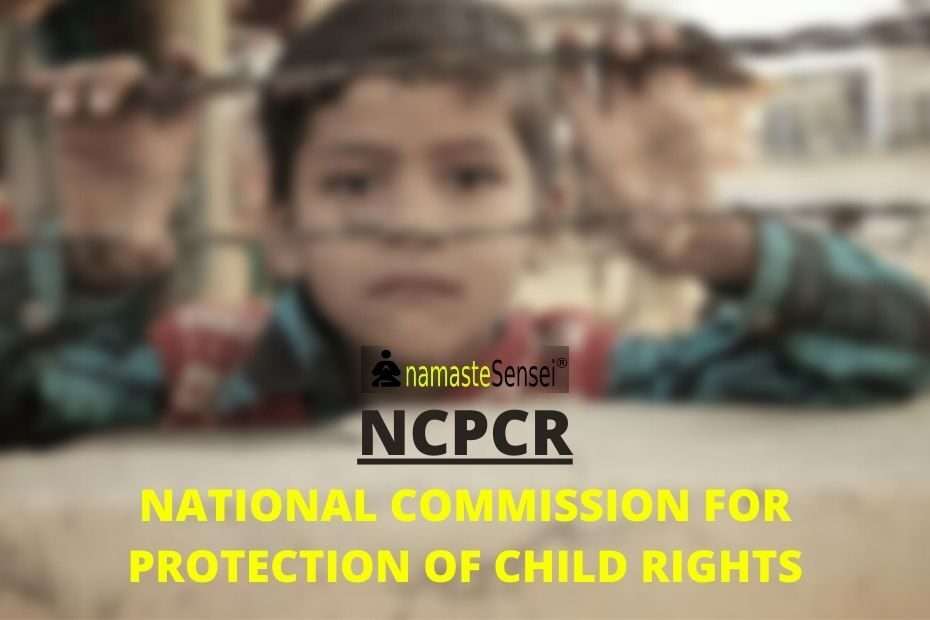Advertisements
NCPCR UPSC – National Commission for protection of child rights
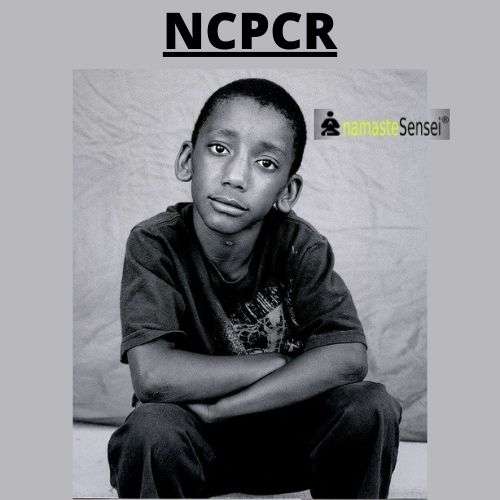
NCPCR – National Commission for Protection of Child Rights
- NCPCR – National Commission for Protection of Child Rights is a statutory body established in 2007. It was established under an act of Parliament, the Commission for Protection of Child Rights (CPCR) Act, 2005.
- NCPCR’s main objective is to protect, promote, and defend children’s rights across the country.
- The Commission’s objective is to guarantee that all laws, policies, programs, and administrative processes are in line with the Indian Constitution and the United Nations Convention on the Rights of the Child’s perspectives on child rights.
Recommended Read – Convention on the Rights of the Child BY General Assembly resolution 44/25 - For the Commission, the protection of all children in the 0 to 18 years age group is of equal and utmost importance.
Composition of The national commission for protection of child rights
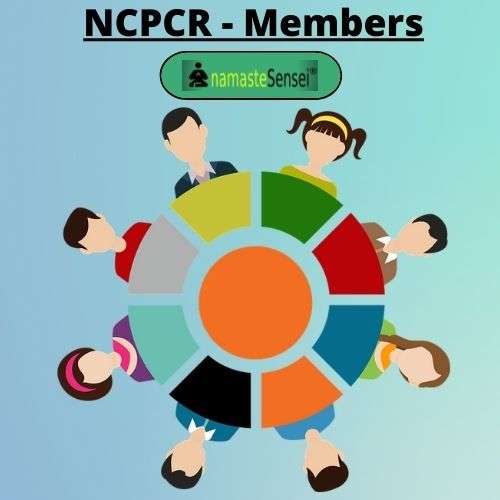
The commission’s members are as follows:
- A Chairperson who is a distinct leader who has worked constantly to improve the welfare of children.
- Six members – A minimum of two women members.
- All members will be nominated by the Central Government from among individuals of eminence, talent, honesty, status, and experience in the following fields:
a. Education
b. Child health, care, welfare, or child development
c. Juvenile justice or care of neglected or marginalized children or children with disabilities.
d. Elimination of child labor or children in distress.
e. Child psychology or sociology.
f. Child Laws.
Functions of the national commission for protection of child rights – NCPCR UPSC
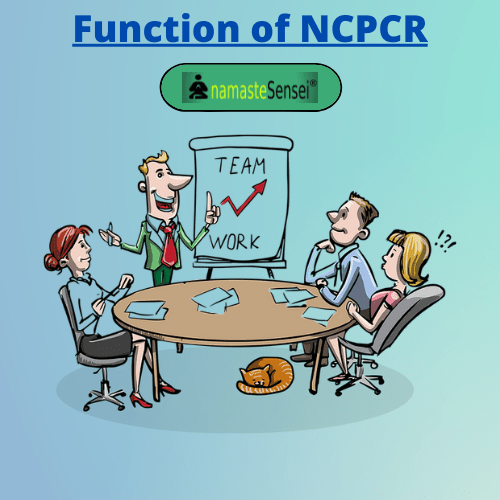
Advertisements
The NCPCR’s functions are provided under Section 13 of the Act as follows:
- Assess and evaluate the safeguards provided by or under any existing legislation for the protection of children’s rights, and also make recommendations for effective implementation.
- To present reports on the operation of those safeguards to the Central Government on an annual basis and at such other intervals as the Commission deems necessary.
- Inquire into violations of children’s rights and initiate legal proceedings.
- Examine all the factors that prevent children from exercising their rights as an impact of terrorism, riots, communal violence, natural disasters, domestic violence, HIV/AIDS, trafficking, maltreatment, torture and exploitation, pornography, and prostitution, and make recommendations for remedial measures.
- Investigate and recommend of any appropriate remedial actions for children in distress, marginalized and impoverished children, children in conflict with the law, juveniles, children without relatives, and children of prisoners who require particular care and protection.
- Review the existing policies, programs, and other activities relevant to children’s rights, as well as treaties by studying treaties and international instruments and suggest changes as needed. Also, make recommendations for their successful implementation in the best interests of children.
- Research children’s rights.
- Advocate and promote child rights literacy across various segments of society and enhance understanding of the safeguards available to defend these rights through mass campaigns, media, seminars, and other accessible techniques.
- Investigate complaints and bring attention to matters related to:
| 1. Deprivation and violation of child rights. |
| 2. Non-implementation of laws providing for the protection and development of children. |
| 3. Noncompliance with policy decisions, guidelines, or instructions aimed at mitigating hardships and ensuring the welfare of the children to provide relief to such children or taking up the issues arising out of such matters with appropriate authorities |
- Such other functions as it may consider necessary for the promotion of child rights and as well as any other matters related to the above function.
Role of NCPCR
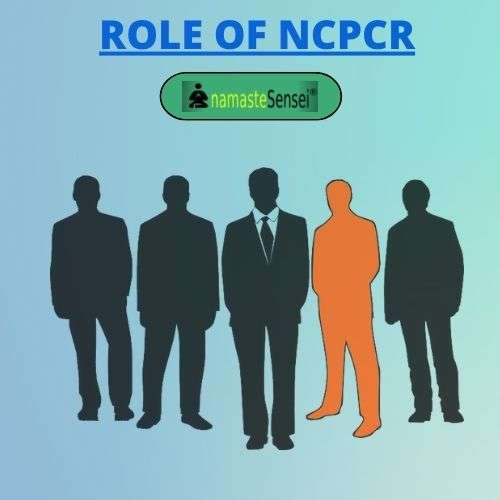
- The NCPCR believes that child participation is integral to addressing child rights. As a result, the Commission encourages children to engage for them to enjoy their rights and privileges.
- The Commission encourages child participation in each one of its interventions. For example, during its state visits, the Commission emphasizes the need to listen to children in public hearings. When children are nervous and demand more privacy, the Commission has kept a space where they can speak freely and comfortably. When contacting such children, a response is given, and the problem is addressed in the best interests of the child following an inquiry, while the institutions are dealt with firmly.
- The Commission has the authority to inquire into complaints and take action on matters relating to deprivation of child’s rights and non-implementation of laws providing for the protection and development of children among other things. Aimed at examining and reviewing the safeguards provided by the law to protect child rights, the Commission will recommend measures for their effective implementation. If required, it will suggest amendments.
- The Commission’s mission is to ensure proper enforcement of child rights and effective implementation of laws and programs affecting children by investigating complaints and taking Suo moto cognizance of matters involving deprivation of child rights, non-implementation of laws providing for children’s protection and development, and non-compliance with policy decisions, guidelines, or instructions aimed at their welfare, as well as announcing relief for children.
You have finished the complete article. If you have any doubts or queries, feel free to leave a comment below. We will respond as soon as possible.
Or Email Us At [email protected]
More Articles:
Advertisements
Any topic you want us to cover. Let us know.
